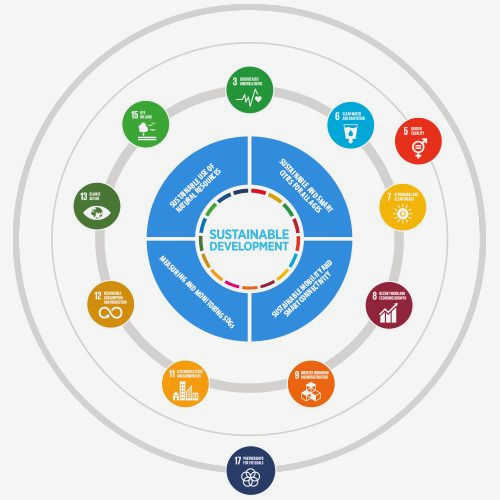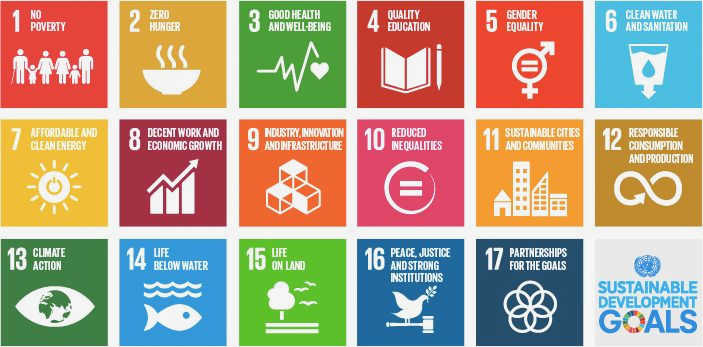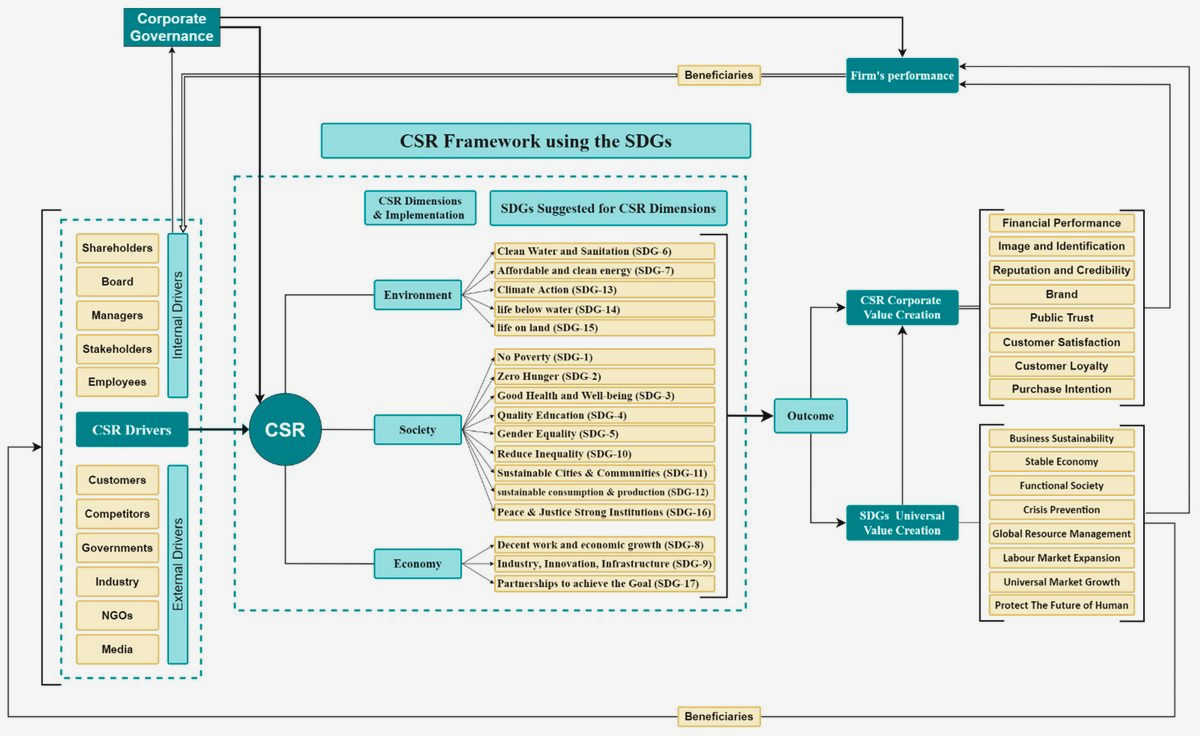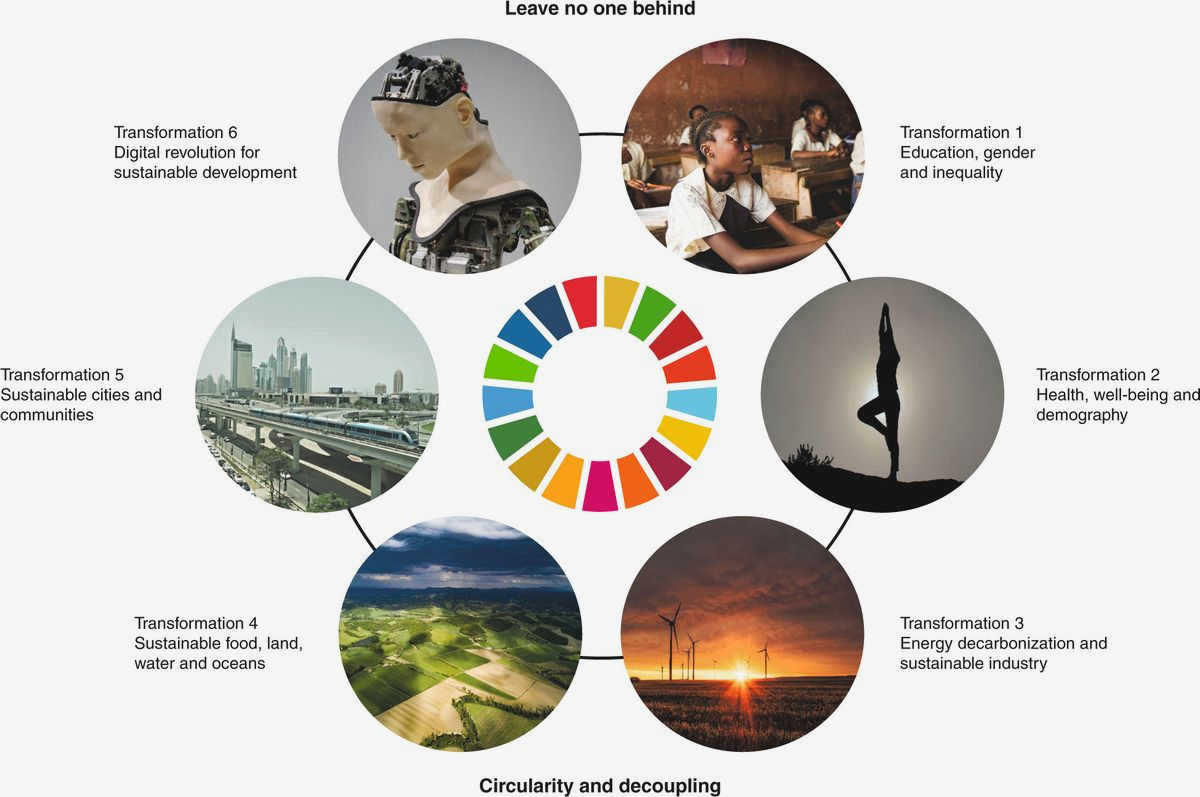Civil society plays a vital role in advancing sustainable development goals (SDGs) across the globe. As a crucial driver of change, civil society organizations (CSOs) are at the forefront of creating awareness, mobilizing resources, and implementing initiatives to address the various challenges facing our world.
One key aspect of the role of civil society in advancing SDGs is their ability to engage and empower communities. By working directly with individuals and communities, CSOs can foster a sense of ownership and responsibility towards sustainable development. This includes promoting education, health and well-being, gender equality, environmental sustainability, and economic growth.
In addition, civil society organizations often act as watchdogs, holding governments and other stakeholders accountable for their commitments to sustainable development. Through advocacy and lobbying efforts, CSOs can ensure that policies and actions are aligned with the SDGs and prioritize the needs of the most vulnerable populations.
Furthermore, civil society plays a crucial role in knowledge sharing and capacity building. CSOs are instrumental in promoting research, innovation, and best practices to address the complex challenges of sustainable development. By promoting collaboration and knowledge exchange, civil society can help accelerate progress towards the SDGs and find innovative solutions to global issues.
In conclusion, the role of civil society in advancing sustainable development goals cannot be overstated. Their ability to engage communities, hold stakeholders accountable, promote knowledge sharing, and drive innovative solutions makes them a crucial driver of change. As we strive to achieve the SDGs and create a sustainable future, the active participation and collaboration of civil society are paramount.
Understanding the Importance of Civil Society
Civil society plays a crucial role in advancing the Sustainable Development Goals (SDGs) by acting as a driver of change. It is composed of non-governmental organizations (NGOs), community groups, and other organizations that exist outside of the government and business sectors.
Effective Advocacy: Civil society is essential for effective advocacy in sustainable development. It amplifies the voices of marginalized communities and provides a platform for them to express their concerns and advocate for their rights. Through research, policy analysis, and public awareness campaigns, civil society organizations bridge the gap between the government and the citizens, influencing policy decisions and holding governments accountable for their commitments to the SDGs.
Community Engagement: Civil society is deeply rooted in communities, making it a valuable link between the government and society. It fosters community engagement and participation in sustainable development initiatives. By working at the grassroots level, civil society organizations can identify local needs, facilitate dialogue, and mobilize resources to address the challenges faced by communities. Their close proximity to communities enables them to understand local contexts and tailor solutions accordingly, ensuring that development efforts are inclusive and sustainable.
Data Collection and Monitoring: Civil society organizations often play a crucial role in data collection and monitoring progress towards the SDGs. Through surveys, interviews, and other data collection methods, they gather information and monitor the implementation of sustainable development initiatives. This data is essential for measuring progress, identifying gaps, and informing policy decisions. Civil society organizations also play a vital role in holding governments accountable for their commitments and advocating for the transparency and accountability in the implementation of the SDGs.
Capacity Building: Civil society organizations are instrumental in building the capacity of individuals, communities, and even governments to effectively contribute to sustainable development. They provide training, education, and technical assistance to empower individuals and communities with the knowledge and skills needed to actively participate in decision-making processes and implement sustainable development projects. By building the capacity of individuals and communities, civil society organizations ensure that sustainable development efforts are not only implemented but also sustained in the long term.
Overall, civil society plays a critical role in advancing the Sustainable Development Goals by advocating for change, engaging communities, collecting and monitoring data, and building capacity. Its unique position outside of the government and business sectors allows it to act as a bridge between these entities, ensuring that sustainable development efforts are inclusive, participatory, and impactful.
Impact of Civil Society in Shaping Global Policies
Civil society plays a crucial role in shaping global policies that address the challenges of sustainable development. Through their advocacy and engagement, civil society organizations (CSOs) bring the voices and concerns of marginalized and vulnerable communities to the forefront of policy discussions. They act as a bridge between governments, international organizations, and local communities, ensuring that policy decisions take into account the needs and aspirations of the people affected by them.

1. Influencing Policy Agendas: CSOs play a key role in influencing global policy agendas by raising awareness and advocating for specific issues. They engage in research, analysis, and policy development to bring attention to pressing social, environmental, and economic issues. By organizing campaigns, mobilizing public support, and advocating for policy changes, civil society organizations push for the inclusion of sustainable development goals in national and international policy frameworks.
2. Monitoring and Accountability: Civil society also contributes to shaping global policies by monitoring the implementation and impact of existing policies. They act as watchdogs, holding governments and international organizations accountable for their commitments and actions. CSOs often provide independent assessments of progress towards sustainable development goals, highlighting areas of success, as well as gaps and shortcomings. This helps to ensure that policies are implemented effectively and in line with the needs and rights of the people they are intended to benefit.
3. Building Partnerships and Coalitions: Civil society organizations are adept at building partnerships and coalitions among various stakeholders, including governments, businesses, academia, and grassroots organizations. By bringing together diverse perspectives and expertise, they contribute to the development of holistic, inclusive, and sustainable policy solutions. These partnerships can foster collaboration, exchange of knowledge and best practices, and enable coordinated action to address complex global challenges.
4. Bridging Local and Global Contexts: One of the unique impacts of civil society in shaping global policies is their ability to bridge the gap between local and global contexts. CSOs work directly with communities at the grassroots level, gaining valuable insights into the realities, needs, and priorities of marginalized groups. They bring this localized knowledge and understanding to global policy discussions, ensuring that policies are grounded in the lived experiences of people they aim to benefit. This helps to make global policies more relevant, effective, and sustainable.
In summary, civil society plays a crucial role in shaping global policies by influencing policy agendas, monitoring implementation and accountability, building partnerships and coalitions, and bridging local and global contexts. Their advocacy and engagement contribute to more inclusive, sustainable, and responsive policy decisions that address the challenges of sustainable development. By amplifying the voices of marginalized communities, civil society helps ensure that global policies prioritize the needs and aspirations of the most vulnerable populations.
Civil Society as a Catalyst for Positive Social Change
Civil society plays a vital role as a catalyst for positive social change. It encompasses a wide range of non-governmental organizations, community groups, and individuals who are dedicated to improving society and addressing various social and environmental issues. These civil society actors are key drivers for advancing the Sustainable Development Goals (SDGs) and creating long-lasting, positive change.
Active Engagement and Advocacy
One way civil society acts as a catalyst for positive social change is through active engagement and advocacy. Civil society organizations and groups actively campaign for social justice, equality, and sustainable development. They raise awareness about pressing issues, mobilize communities, and hold governments and corporations accountable for their actions. By amplifying the voices of marginalized groups and challenging the status quo, civil society plays a crucial role in pushing for policy changes and implementing sustainable solutions.

Expertise and Innovation
Civil society also brings valuable expertise and innovative solutions to the table. Many civil society organizations have specialized knowledge in areas such as health, education, environmental conservation, and poverty alleviation. They conduct research, develop innovative projects and pilot programs, and offer practical solutions to complex social challenges. By leveraging their expertise and creativity, civil society contributes to the development and implementation of sustainable development initiatives.
Inclusive Participation and Empowerment
Civil society promotes inclusive participation and empowerment of marginalized communities. It creates spaces for dialogue, collaboration, and collective action, giving a voice to those who are often excluded from decision-making processes. Through community organizing, capacity-building, and advocacy, civil society empowers individuals and communities to actively participate in shaping their own future and demanding their rights. By fostering inclusion and empowerment, civil society plays a critical role in promoting social justice and equitable development.
In conclusion, civil society acts as a catalyst for positive social change by engaging in active advocacy, bringing expertise and innovative solutions, and promoting inclusive participation and empowerment. Its role in advancing the Sustainable Development Goals cannot be underestimated, as it plays a vital role in pushing for policy changes, implementing sustainable solutions, and creating a more equitable and sustainable world.
Strengthening Democracy through Civil Society Engagement
The role of civil society in advancing sustainable development goals goes beyond merely implementing projects and initiatives. It is also a crucial driver of change in strengthening democracy and promoting good governance. Civil society organizations play a significant role in advocating for the rights and needs of citizens, promoting transparency and accountability, and fostering citizen participation in decision-making processes. Their engagement helps to ensure that the voices of the people are heard and taken into account in shaping policies and laws.
Advocacy and Representation: Civil society organizations actively engage in advocating for the rights and interests of specific groups in society, including marginalized communities, women, youth, and indigenous peoples. They act as a voice for these groups, raising awareness about their needs and concerns and pushing for policy changes that can improve their lives. Through their advocacy efforts, civil society helps to ensure that democratic systems are responsive and inclusive.
Transparency and Accountability: Civil society organizations play a vital role in promoting transparency and accountability in government and other institutions. They monitor the actions and decisions of those in power, providing independent scrutiny and holding them accountable for their actions. Through their work, civil society helps to prevent corruption and promote good governance, which are essential for a functioning democracy.
Citizen Participation: Civil society organizations also play a critical role in fostering citizen participation in decision-making processes. They provide platforms for citizens to engage with policymakers, express their opinions, and contribute to policy discussions. This involvement helps to ensure that policies and decisions reflect the needs and aspirations of the people, strengthening the democratic process.
Collaboration and Partnerships: Civil society organizations often collaborate with governments, businesses, and other stakeholders to address complex challenges and achieve sustainable development goals. Through these partnerships, they bring together different perspectives and expertise, fostering innovation and collective action. This collaboration contributes to the strength and effectiveness of democratic systems.
In conclusion, civil society engagement is vital for strengthening democracy and advancing sustainable development goals. Through their advocacy, transparency initiatives, citizen participation efforts, and collaborations, civil society organizations contribute to the promotion of good governance, the protection of human rights, and the achievement of a more equitable and sustainable world.
Promoting Civic Engagement for Sustainable Development
Civic engagement plays a crucial role in advancing sustainable development goals. It involves active participation of individuals and organizations in the decision-making processes that impact their communities and the environment. Engaging citizens in sustainable development initiatives helps to build a sense of ownership and responsibility towards the goals, leading to more effective and long-lasting solutions.
1. Creating Awareness: Civic engagement can start by creating awareness about the importance of sustainable development goals and their linkages to local issues. By organizing workshops, seminars, and public awareness campaigns, civil society can educate and inform individuals about the challenges and opportunities for sustainable development.
2. Mobilizing Resources: Civil society can play a key role in mobilizing resources for sustainable development initiatives. By bringing together individuals, companies, and other stakeholders, they can pool financial, human, and technological resources to support projects that address social, economic, and environmental challenges.
3. Advocacy and Policy Influence:
Civil society organizations can advocate for policies and legislation that promote sustainable development. They can engage with policymakers, governments, and international organizations to ensure that sustainable development goals are integrated into national and global agendas. By advocating for change, civil society can influence policies and practices that are crucial for achieving sustainable development.
4. Monitoring and Accountability:
Civil society plays a critical role in monitoring the progress of sustainable development initiatives and holding stakeholders accountable for their commitments. By conducting independent assessments, audits, and evaluations, civil society organizations can provide transparent and objective feedback on the implementation of sustainable development goals. This helps to identify gaps, challenges, and areas for improvement, ensuring that the goals are effectively and efficiently achieved.
In conclusion, promoting civic engagement for sustainable development is essential for achieving the SDGs. By creating awareness, mobilizing resources, advocating for policies, and monitoring progress, civil society drives positive change and ensures that sustainable development goals are effectively implemented.
Collaborative Efforts between Civil Society and Governments
In advancing the Sustainable Development Goals (SDGs), it is crucial for civil society and governments to work collaboratively. The involvement of both parties can lead to more effective and sustainable outcomes in achieving the targets set by the United Nations.
Open dialogue: A key aspect of collaborative efforts between civil society and governments is the establishment of open dialogue. This involves regular discussions and consultations between the two parties to exchange ideas, share experiences, and identify common goals. Through open dialogue, civil society organizations can provide valuable insights and expertise, while governments can offer resources and support.
Coordinated action: Collaborative efforts also require coordinated action between civil society and governments. This entails aligning strategies, policies, and actions to ensure synergy and maximize impact. For example, civil society organizations can contribute to the implementation of government initiatives through their on-the-ground knowledge and networks. Similarly, governments can provide the necessary legal framework and resources to enable civil society organizations to carry out their activities.
Capacity building: Collaboration between civil society and governments can also include capacity building initiatives. This involves training and support programs that aim to enhance the skills and knowledge of both civil society organizations and government officials. By building their capacity, both parties can better contribute to sustainable development efforts and create long-term positive change.

Monitoring and accountability: Finally, collaborative efforts should also include mechanisms for monitoring and accountability. Civil society organizations can play a crucial role in monitoring the progress of government initiatives and holding them accountable for their commitments. This can be done through independent evaluations, reporting mechanisms, and advocacy campaigns. By ensuring transparency and accountability, collaborative efforts can be more effective in achieving the SDGs.

In conclusion, collaborative efforts between civil society and governments are essential in advancing the SDGs. Through open dialogue, coordinated action, capacity building, and monitoring, these partnerships can drive positive change and contribute to sustainable development on a global scale.
Civil Society’s Role in Advocating for Human Rights
Civil society plays a crucial role in advocating for and promoting human rights. Through their collective action and advocacy efforts, civil society organizations (CSOs) contribute to the protection and promotion of human rights at local, national, and international levels.
CSOs work to raise awareness about human rights issues, mobilize public support, and put pressure on governments and other relevant actors to fulfill their obligations and commitments. They conduct research, monitor human rights violations, and provide assistance to victims.
Furthermore, civil society acts as a watchdog, holding governments accountable for their actions and ensuring transparency and accountability in governance. They engage in public campaigns, organize protests, and utilize social media platforms to amplify their voices and demand change.
CSOs also have an important role in influencing policy-making processes. They provide expertise, contribute to policy debates, and advocate for laws and policies that protect and promote human rights. They participate in international forums and engage with international human rights mechanisms to hold governments accountable for their actions on the global stage.
In addition, civil society organizations work to empower marginalized and vulnerable groups, such as women, children, indigenous peoples, and refugees, who are often disproportionately affected by human rights abuses. They provide support, resources, and create safe spaces for these groups to voice their concerns and assert their rights.
In conclusion, civil society’s role in advocating for human rights is crucial for the advancement of a just and equitable society. They play a vital role in raising awareness, mobilizing public support, pressuring governments, influencing policy-making, and empowering marginalized groups. Their efforts contribute to the protection and promotion of human rights, and ultimately, to the achievement of sustainable development goals.
Civil Society’s Contributions to Environmental Sustainability
1. Advocacy and Awareness
Civil society plays a crucial role in raising awareness and advocating for environmental sustainability. Non-governmental organizations (NGOs), community groups, and grassroots movements are often at the forefront of campaigns and initiatives aimed at addressing environmental challenges. They work to educate the public about the importance of sustainable practices, such as reducing waste, conserving energy, and protecting natural resources.
2. Collaboration and Partnerships
Civil society organizations work collaboratively with governments, businesses, and other stakeholders to advance environmental sustainability. They form partnerships to implement projects and initiatives that promote sustainable development. Through these collaborations, civil society actors bring their expertise, knowledge, and resources to the table, resulting in more effective and comprehensive solutions to environmental issues.
3. Monitoring and Accountability
Civil society organizations also play a crucial role in monitoring and holding governments and other actors accountable for their environmental commitments. They track progress towards environmental goals, collect data on environmental indicators, and provide valuable insights and recommendations for improvement. Through their independent monitoring efforts, civil society organizations ensure transparency and promote responsible environmental practices.
4. Capacity Building and Education
Civil society organizations are actively involved in capacity building and education initiatives related to environmental sustainability. They provide training, workshops, and educational programs to empower individuals and communities with the knowledge and skills necessary to adopt and promote sustainable practices. These efforts contribute to creating a culture of environmental responsibility and fostering long-term behavior change.
5. Grassroots Action and Innovation
Civil society mobilizes grassroots action and fosters innovation in environmental sustainability. By engaging individuals and communities at the local level, civil society organizations empower them to take action and make a difference in their own environments. They support community-led initiatives, promote sustainable technologies and practices, and encourage innovation and creativity in finding solutions to environmental challenges.
In conclusion, civil society’s contributions to environmental sustainability are multifaceted and impactful. Through advocacy, collaboration, monitoring, capacity building, and grassroots action, civil society organizations play a crucial role in driving positive change and advancing the goals of environmental sustainability. Their efforts are essential for creating a more sustainable future for generations to come.
Leveraging Technology for Civil Society’s Advancement
Technology has become an essential tool for the advancement of civil society in the pursuit of sustainable development goals. It has enabled civil society organizations to reach a wider audience, collaborate more effectively, and advocate for change in a more efficient manner.
One way in which technology has been leveraged by civil society is through the use of social media platforms. These platforms have provided organizations with a powerful means to share their messages, engage with their target audiences, and mobilize support for their causes. By utilizing social media, civil society organizations are able to amplify their voices and connect with individuals who may not be easily reached through traditional channels.
In addition to social media, technology has also facilitated greater collaboration among civil society organizations. Online platforms and tools have made it easier for different organizations to come together, share resources, and work towards common goals. This has resulted in more coordinated and impactful efforts, as organizations are able to pool their expertise, knowledge, and resources to address complex issues.
Furthermore, technology has enabled civil society organizations to gather and analyze data in a more efficient and meaningful way. With the help of data analytics tools, organizations can now collect and analyze large amounts of data to better understand societal challenges, measure their impact, and make informed decisions. This data-driven approach allows civil society organizations to become more evidence-based in their work and ensure that their efforts are focused on areas where they can have the greatest impact.
In conclusion, technology has revolutionized the way civil society operates and contributes to the advancement of sustainable development goals. It has enabled organizations to reach a wider audience, collaborate more effectively, and make data-driven decisions. By leveraging technology, civil society can continue to drive positive change and work towards a more sustainable and equitable future.
The Future of Civil Society in Achieving Sustainable Development Goals
Civil society plays a crucial role in advancing sustainable development goals, acting as a powerful driving force for change. As we look to the future, it is essential to consider how civil society can continue to contribute to achieving these goals.
1. Strengthening Collaboration: In order to effectively address the complex challenges of sustainable development, civil society organizations need to strengthen their collaboration with other stakeholders, including governments, businesses, and international organizations. By working together, these diverse actors can leverage their unique capacities and expertise to drive meaningful change.
2. Amplifying Grassroots Voices: Civil society is often the voice of marginalized communities and individuals. In the future, it will be crucial to amplify these voices and ensure their inclusion in decision-making processes. This can be achieved through increased participation and representation of grassroots organizations and community members in various platforms and forums.
3. Embracing Technology: Technology has the potential to revolutionize the way civil society operates and contributes to sustainable development goals. By harnessing digital platforms and tools, civil society organizations can enhance their reach, impact, and advocacy efforts. This includes using social media to raise awareness, crowdfunding platforms to access resources, and data analytics to drive evidence-based decision-making.
4. Fostering Innovation: To address the emerging challenges and evolving needs of sustainable development, civil society must foster a culture of innovation. This involves encouraging experimentation, embracing new ideas and approaches, and fostering collaboration between civil society organizations and other sectors. By embracing innovation, civil society can better respond to the complex and interconnected issues of sustainability.
5. Holding Stakeholders Accountable: Civil society has a critical role in holding governments, businesses, and other stakeholders accountable for their commitments to sustainable development goals. Through advocacy, research, and monitoring, civil society can shed light on gaps in implementation, advocate for policy changes, and drive accountability at all levels.
Conclusion: The future of civil society in achieving sustainable development goals relies on strengthening collaboration, amplifying grassroots voices, embracing technology, fostering innovation, and holding stakeholders accountable. By continuing to play an active and influential role, civil society can help drive the transformative change needed for a sustainable and equitable future.





